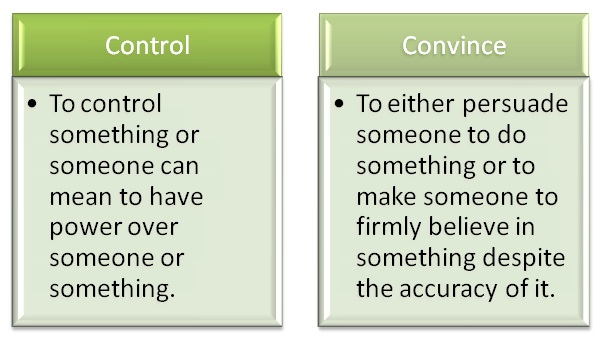Control vs Convince
The difference between control and convince might seem obscure at first, as both words are associated with influence. However, there are distinct differences between these two words, and understanding these differences can help clarify their meanings and usage. In this article, we will explore the definitions of control and convince and discuss the key differences between them.
What does Control mean?
Control (verb) is defined as having the necessary power to influence or direct people’s behavior or the course of events, or to determine the behavior and supervise the running of something. To control someone or something also means to have power over them. For example, in scenarios where children are controlled by their parents or employees are controlled by their employer, the party who controls has superior power over the party being controlled. In essence, to control is to dominate and influence someone or something.
What does Convince mean?
Convince (verb) is defined as persuading someone to do something or making someone firmly believe in something, regardless of its accuracy. To convince also denotes the idea of influence, but it is important to note that you can only convince people, not things. When you convince someone, it is not done blindly; rather, you do it in a way that the person ultimately believes in what you are saying. You change someone’s idea of something to convince them.
Key Takeaways
- To control is to have the power to influence or direct people’s behavior or the course of events, while to convince is to persuade someone to do something or make them firmly believe in something.
- When someone is being controlled, their actions may not align with their beliefs or desires. In contrast, when someone is convinced, they believe what they are doing is the right thing because someone has effectively persuaded them.
- To control someone, you generally need to be in a superior position. However, to convince someone, your position (whether superior or inferior) does not matter; what matters is the strength of your argument.
